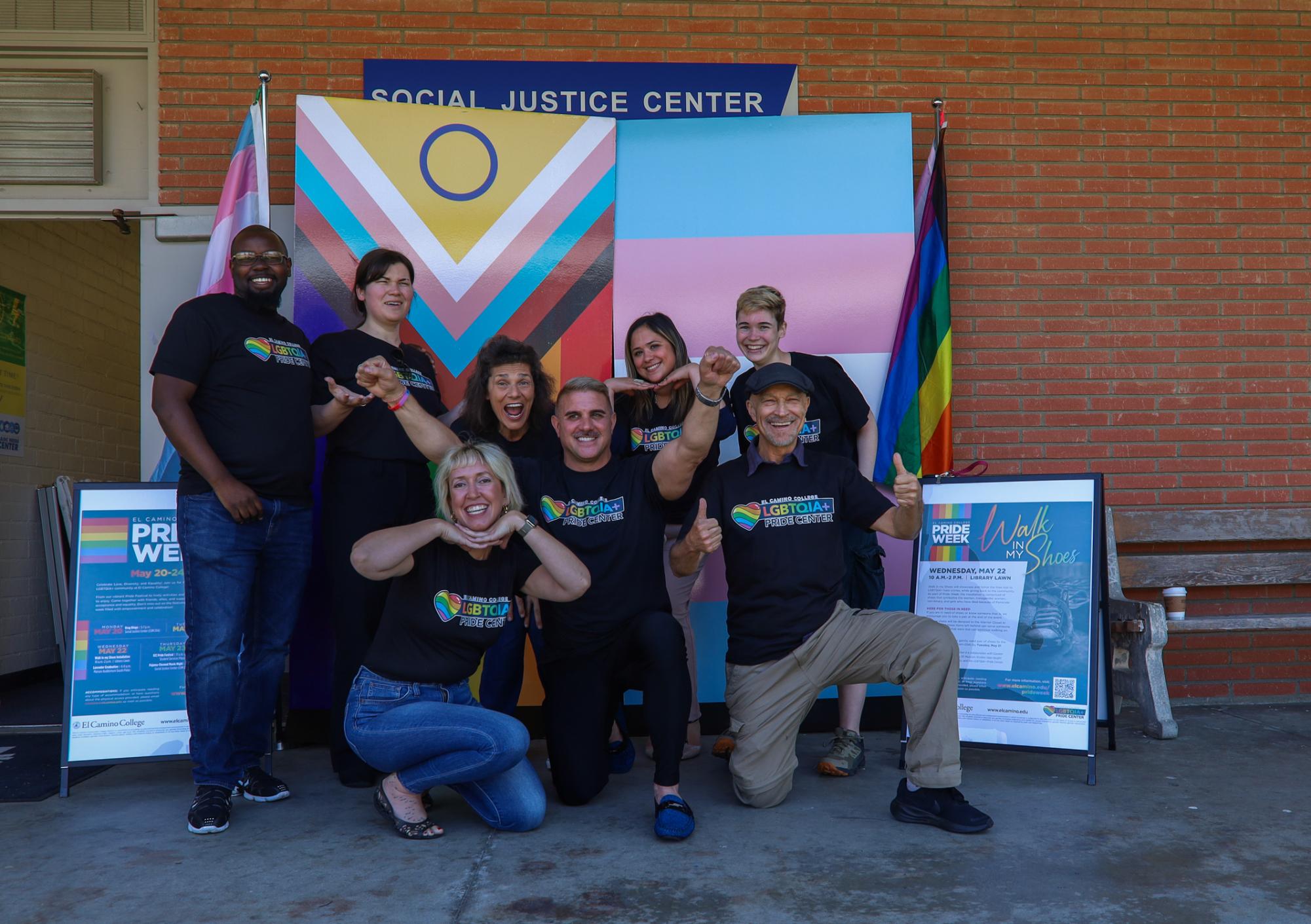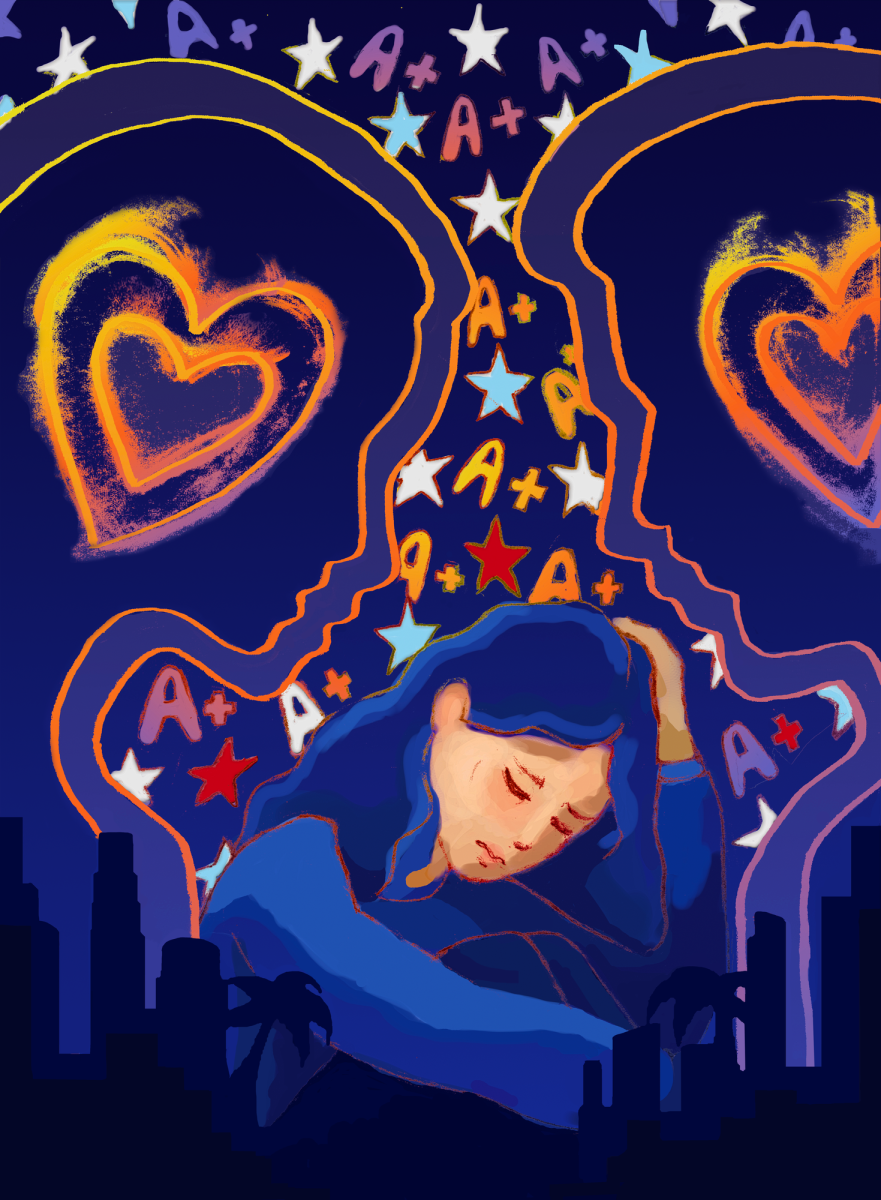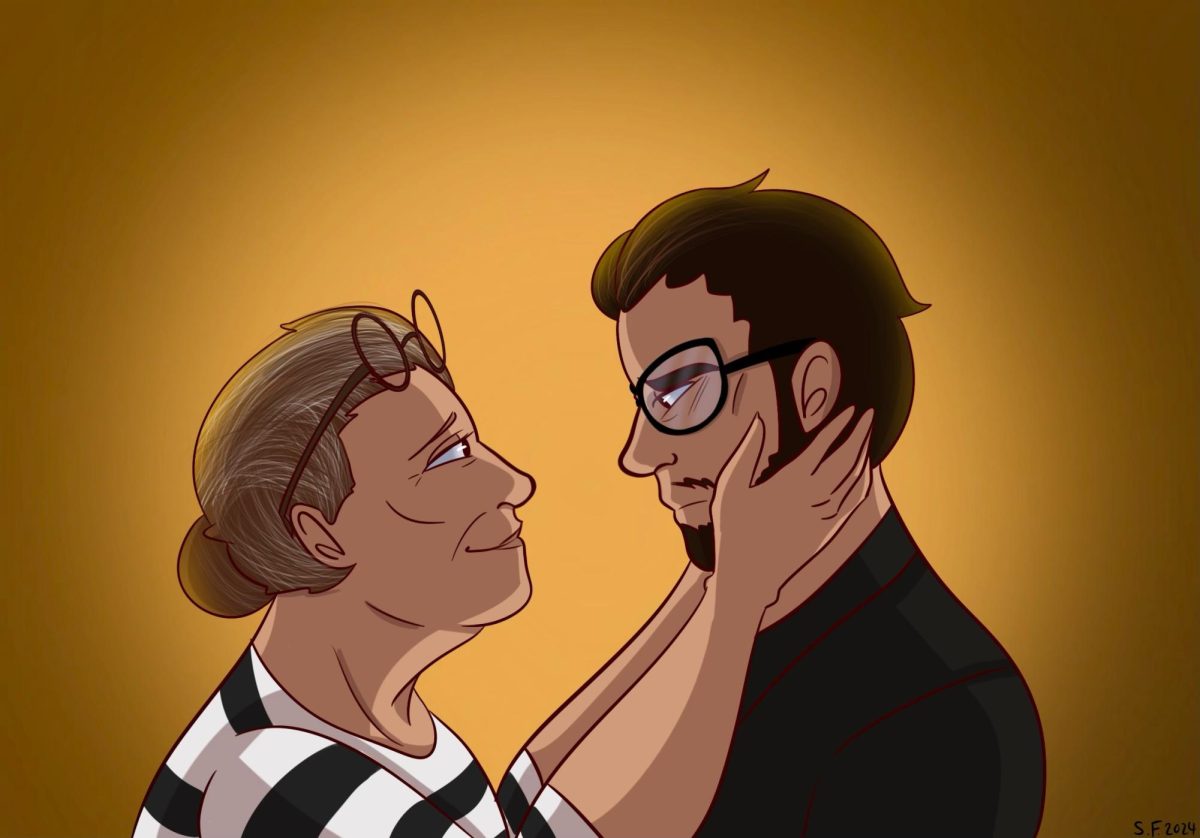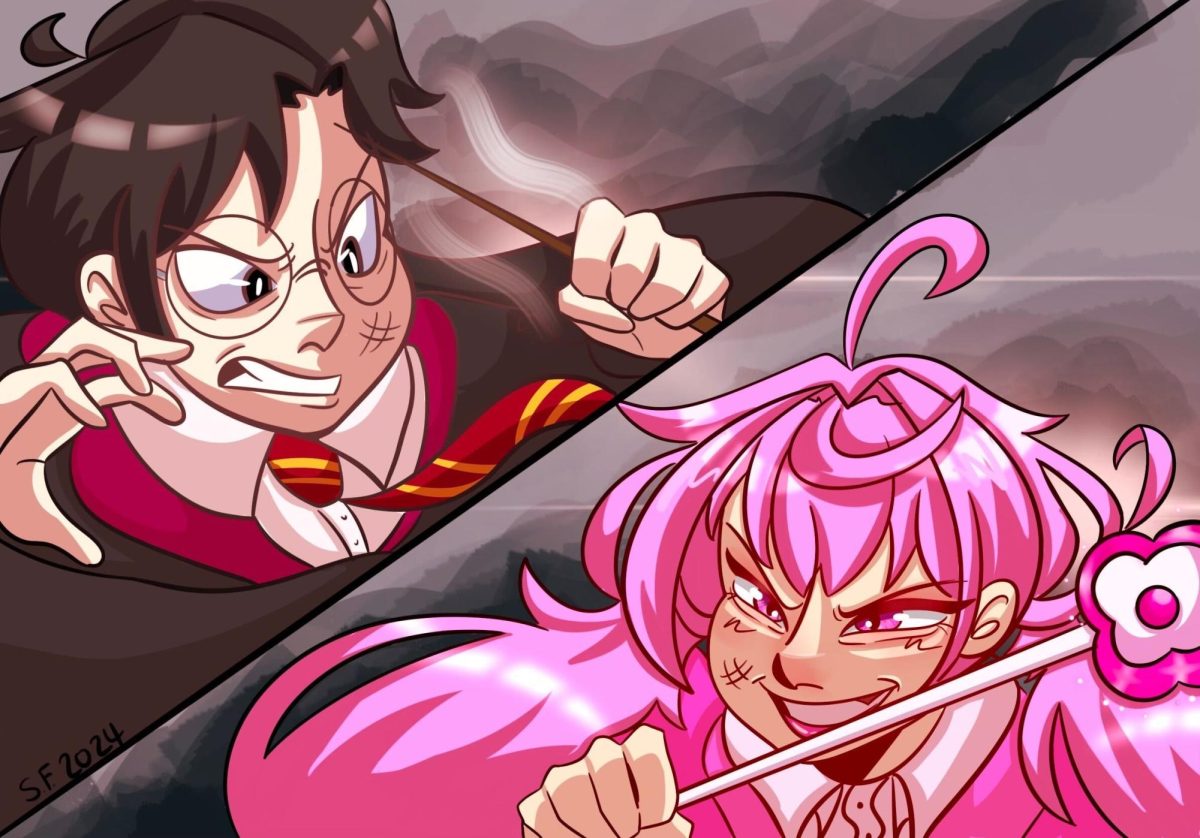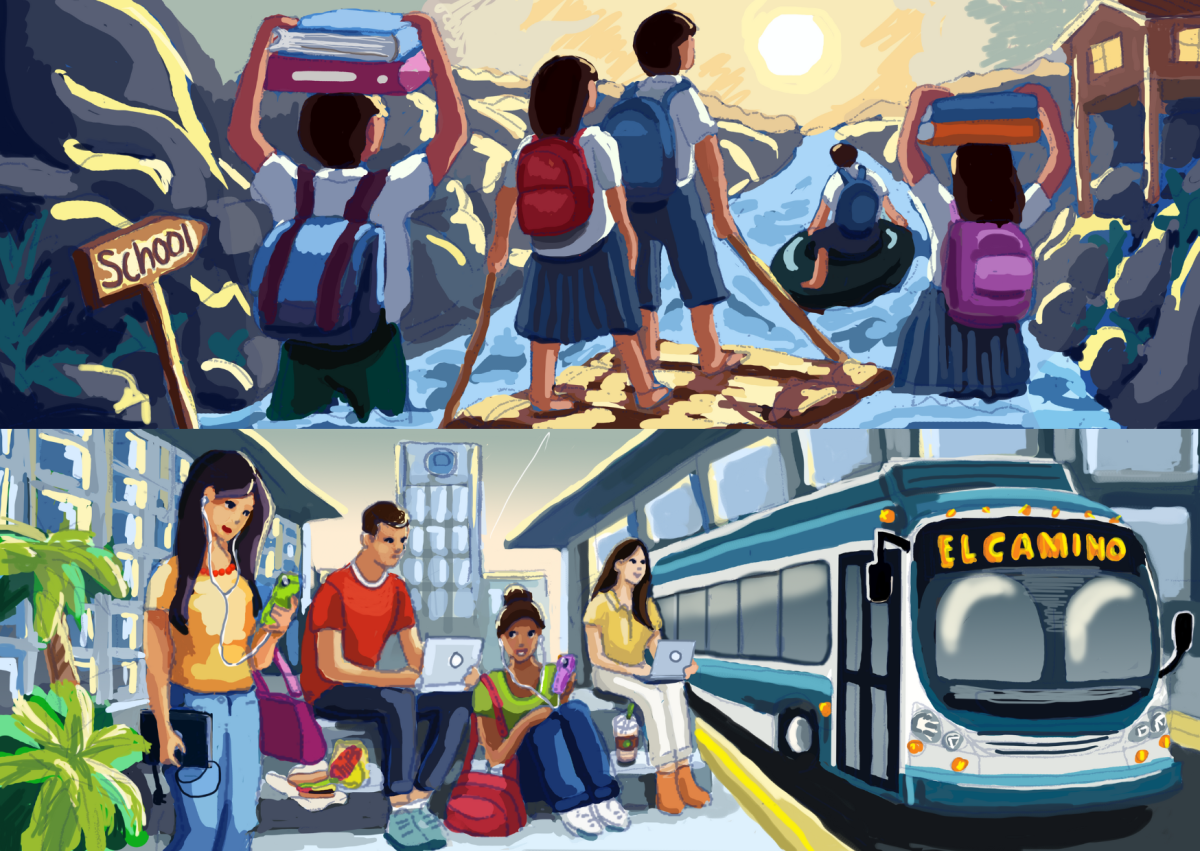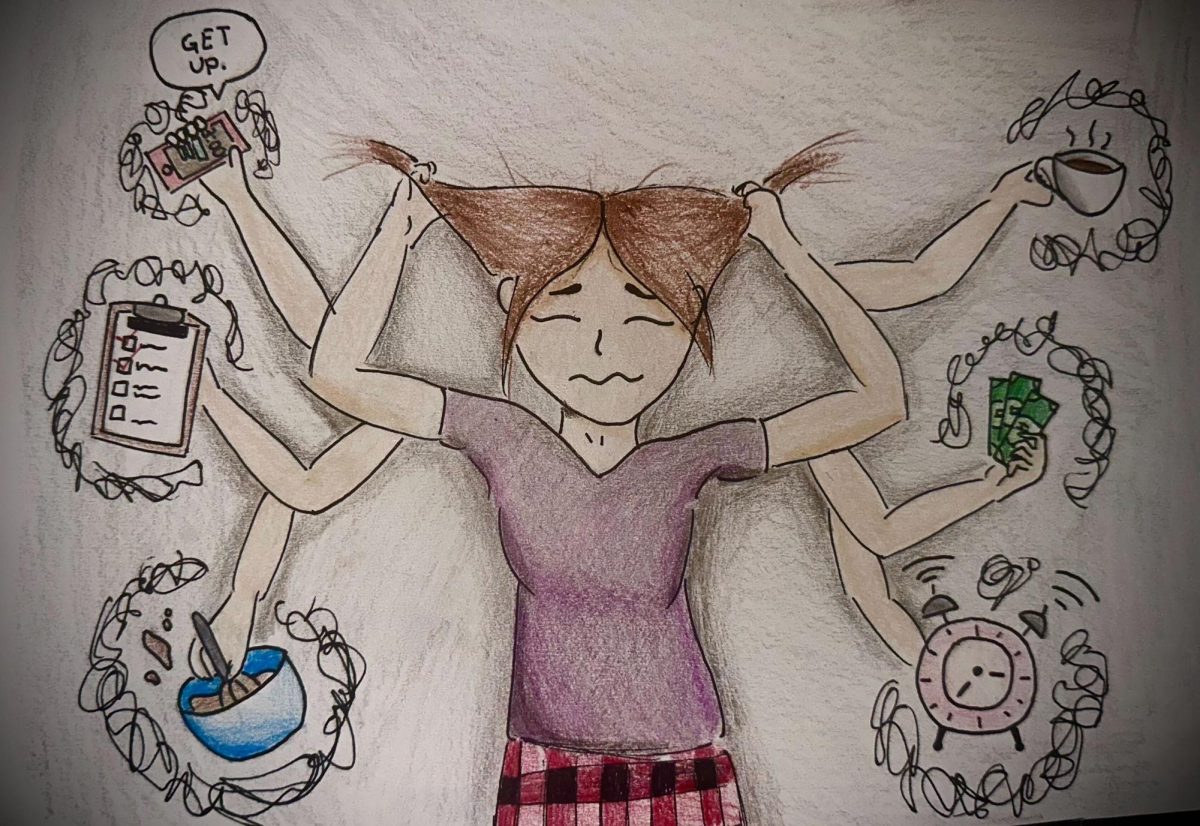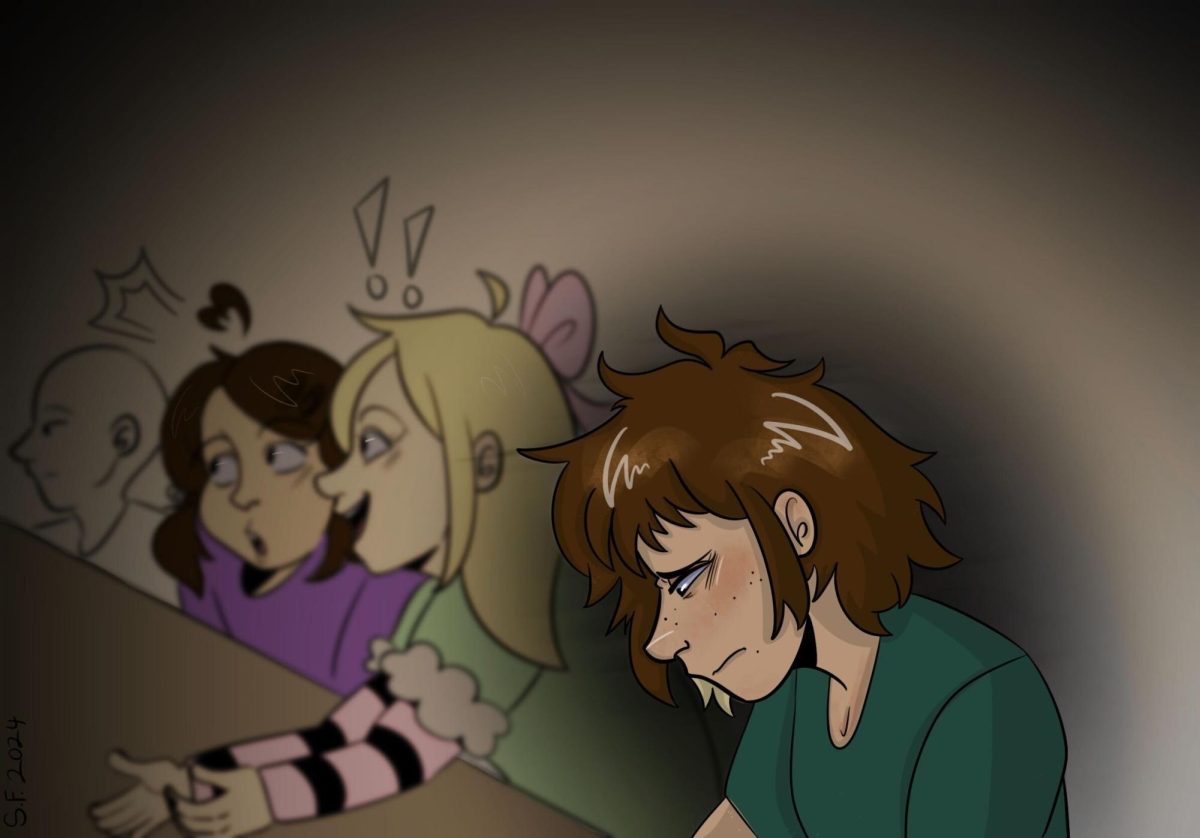Belonging
Alec Lyons was drifting.
Lyons had lost all sense of who he was.
He was facing one of the most difficult times of his life, as he grappled with the combination of a physical health issue, a persisting knee injury that kept him “bouncing around” between the hospital and home, and the decline of his mental health.
His mental health issues were fueled by the intense gender dysphoria he was experiencing.
Lyons knew he was transgender by the time he was in the 11th grade and had begun to socially transition. However, the process of physically transitioning is what plagued him during his time as a student at UC Riverside.
“It’s hard to explain [dysphoria] as a feeling to people who don’t experience it,” Lyons said. “It’s like you’re fundamentally incompatible with the form you exist in, but you cannot escape it.”
Lyons had driven himself into the ground, overwhelmed and having given up on the idea of his education. He decided to take a year off “out of necessity,” withdrawing his enrollment at UC Riverside and instead using his time to attend therapy and figure out his future.
![Alec Lyons, 21, poses in front of the Social Justice Center. Lyons is the GSA club president, a role that has allowed him to connect with other queer students. “Having a space [such as the GSA] is good for students to come and decompress,” Lyons said. (Dayana Rodriguez | Warrior Life)](https://eccunion.com/wp-content/uploads/2024/06/Rodriguez_GSApart2_042924-59_EDIT-600x400.jpg)
According to the Gay Lesbian Straight Education Network, Californian LGBT students and their allies who have a GSA in their schools are more likely to feel safe in school than their peers (76% compared to 69%).
According to the El Camino College Institutional Research, in the fall 2023 semester, there were 1,346 students who identified themselves as LGBTQIA+ out of 22,343 total students.
Lyons joined GSA was because he was queer himself and sought a space with other queer people. He said it’s nice to have a dedicated space where people can be who they are without any mixture of hatred.
“I find that often just being out in the world, the kind of people you encounter- it’s a mixed bag…some people you will encounter are queer, some are allies, some are just good meaning people who don’t know that much, and some people are kind of actively not so happy with you or your existence.” Lyons said.
According to The Williams Institute, LGBTQ people were nearly twice as likely to report unfair treatment by teachers, staff, or school administrators (22.1% vs. 11.7%) and hearing slurs or negative comments about LGBTQ people at their community college as their non-LGBTQ peers (24.0% vs. 12.7%).
El Camino’s club serves as a safe space for students to find community, and the college does a good job of not “othering” its students, according to ECC student Nancy Zeeb.
Zeeb, 19, is a biology major and serves as the Inner Club Council representative, a board position for the GSA club.
“When you connect with people who are sharing similar experiences as you are, or seeing the world through a similar lens, it’s very reciprocated – everything you’re feeling,” Zeeb said.
Engaging with the GSA on campus opens young queer people up to a network, Zeeb said. The club not only fosters student discussion and hosts activities, but it also teaches students about LGBT history and helps students feel part of something bigger.
Since the 1970s, the presence of a GSA, a support network for LGBQIA students, has been established within El Camino, yet the resources for LGBT students have evolved beyond what was available in those early days.
Community
The GSA Club’s existence can be traced back to the late 1970’s.
However, the club went through restructures and name changes, ranging from Gay Student Union, and Gay and Lesbian Association, as reported by The Warwhoop in Vol. 32 in May 1978 and Vol. 34 in 1979.
The GSA Club had existed once at El Camino, but by the 90’s, it was dormant. An inactive club that left a vacancy in the support available to students – until professors Joe Holliday and Angela Simon came along.
Holliday, 66, recalls when he began working at El Camino in 1992 under a one-year temporary contract to teach geology. He was full of ambition and seeking to prove himself.
Clubs were his passion.
He said and felt compelled to work toward creating clubs for the communities that lacked them.
“As a LGBT member myself, I was shocked and disappointed that there wasn’t a club for this group,” Holliday said.
Holliday said that the impact of community is “key” to combating the prevalence of mental health issues within LGBT students.
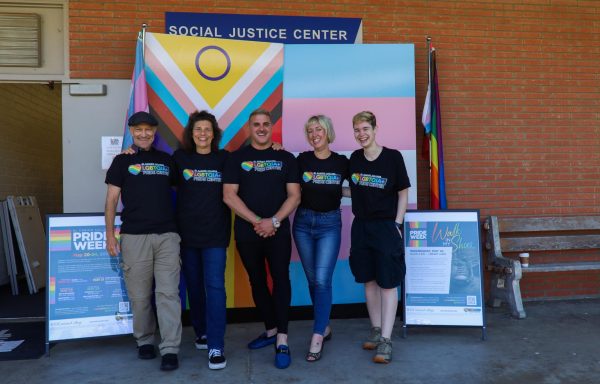
“If [LGBT individuals] don’t have a sense of community, if they don’t find their tribe, they have a very high suicide rate and depression, those kinds of things,” Holliday said.
According to The Trevor Project, LGBTQ youth who live in a community that is accepting of LGBTQ people reported significantly lower rates of attempting suicide than those who do not.
LGBTQ people are not at inherent risk due to their orientation and identity, but instead due to the stigmatization within society.
Holliday said that fortunately for him, Simon came along within a couple years in 1996 and helped foster the community. They would go on to advise the club together for 20 years.
“She helped the club grow and to be what it was…she was instrumental in bringing it up from amateur status to a really good one,” Holliday said.
Simon, a full-time psychology professor at El Camino and advisor for the GSA, said she has witnessed the evolution of resources available for students in the LGBT community from when she first started.
“[In the early days] We tried to get the staff and the faculty and the employees involved, we tried to [create] like a little network, but it wasn’t successful,” Simon said. “It was such a different time then, than it is now.”
Simon said many employees were not yet “out” and the level of support 20 years ago was quite different from how it is now.
She recounts that in the early 2000s, it was still a challenge for students to be who they were and be successful, prompting her to support the LGBT community.
“I wanted them to have a place where they could feel safe and be themselves,” Simon said.
The common goal for Simon and Holliday was the drive to help students succeed academically and get through school without having their personal hardships related to sexual orientation and gender identity stopping them.
Holliday said that the efforts put into promoting visibility for the GSA were much different too. The internet did not serve as a tool the same way as it does today.
There was no social media, there was no online advertising, and for a long time, the GSA was limited to flyers found on kiosks around campus.
“Put that into perspective…it’s why the club was so important. There was no way for people to meet online until this century,” Holliday said.
Simon said the evolution of resources available for students in the LGBT community has “just really taken off.”
However, Simon credits the LGBT committee formed in 2018 for bringing forth so many new initiatives.
“There was just so many other people that were very energetic and excited, and that’s what you need, a group of people who have great ideas and have the energy to pull together,” Simon said.
Doing it for the Love-Out of Love
A small group of six ECC employees made up of counselors and faculty, found their committee vitalized with an initiative under the guidance of a new spearhead.
Salvador Navarro, ECC’s LGBTQIA+ counselor, led the committee which was founded to provide visibility and expand the support available for LGBT students and the college community at the time.
Navarro, 39, was in search of a “home” when he initially took on his job as a First Year Experience program counselor, and steadily, he found his community and calling within serving the LGBT community at El Camino College.
“I’m meant to serve my community,” Navarro said. “Because it also serves me, it helps heal me… I help others but in the process, I also help heal that inner child within me.”
Navarro helmed the group initiative, a previously formed committee that would meet to talk about the change they wanted to see on campus, which was now reinvigorated. It all but suddenly took off with the energy for making a difference.
“We started spending our time trying to build a community on campus, the GSA club, they had already existed, but that was about it,” Sarah Leinen, ECC adjunct English and human development professor said. “There were no classes, no programming, nothing.”
The committee started with creating LGBTQIA+ Safe Zone Trainings for faculty, administrators, and staff, as well as initiating Pride Week on campus in 2019, Leinen said.
Then in 2020, she reached out to the El Camino foundation and helped establish the “Queer is Love” scholarship.
“A lot of this work was done outside of our work hours, our nine to five, we would meet in the evenings, all for the love of this community,” Navarro said.
Later in 2021, there was an opportunity to receive funding from the state for LGBTQI+ initiatives. Navarro, alongside Hong Herrera Thomas, ECC history professor, and Nayeli Ovilas, director of Student Equity & Achievement, wrote the proposal for a grant which was awarded to the college and helped fund the Pride Center.
“We have Pride Week, we have Lavender Graduation, we bring students to the LGBT California Community College conferences…the evolution [of resources] is just about making sure students feel safe on campus, and to ensure that they thrive,” Herrera Thomas said.
Pride
The resource of an LGBTQIA+ counselor, such as the likes of Navarro, is one of many resources that is offered through El Camino’s Pride Center, a valuable network available to students, a network that stands out to many as the first LGBT related help that they have ever received.
Kenny Simkins, the LGBTQIA + student success coordinator at El Camino College said growing up and watching the evolution of resources and opportunities available to students and the LGBT population as a whole has been “beautiful.”
![Joe Holliday and Angela Simon co-advised the GSA together for 20 years. “[Simon] was a Godsend,”Holliday said. “She saved me and she saved the club." (Dayana Rodriguez | Warrior Life)](https://eccunion.com/wp-content/uploads/2024/06/Rodriguez_GSApart2_042924-71_EDIT-600x400.jpg)
However, Simkins left his role at Los Angeles City College once his role at El Camino became full time, as it was “a once in a lifetime opportunity.”
“I get to open up a Pride Center on our college campus – a California community college campus– from the ground up. I couldn’t say no to that,” Simkins said.
Simkins said growing up as a young gay person there was not a lot of opportunity to take up space and be out comfortably with one’s sexual identity. Simkins said he appreciates the difference in how students are now able to navigate their sexual identity.
“There’s an awareness now on the community that wasn’t there 20 years ago,” Simkins said. “I came out in the late 90s, early 2000s, and I’ve seen the evolution of gay marriage being legal in all 50 states…and these are things that weren’t put in place when I was a young person.”
Simkins said that there is more of a support system from faculty, staff, and administrators than there are people who do not support the LGBTQ+ efforts on campus. Opposers to the efforts do exist and he has had to learn how to deal with the people who do not support the work he is doing and those who do not understand it.
“I look at it as a learning opportunity. Not only for them, but for me too,” Simkins said. “It gives me an opportunity to create dialogue and see where they’re coming from.”
Simkins said that as an educator, everyone should have “that same frame of mindset” and look at differences in opinion as an educational opportunity.
One of the many goals of The Pride Center is aiming to provide LGBT awareness and education for the ECC community, which it has done by facilitating workshops and by building an LGBTQ+ curriculum.
Kassia Wosick, professor of sociology at El Camino, is one of the professors at ECC that teaches her curriculum with an LGBTQ+ lens.
She teaches Sociology of Sexualities, and Wosick says that when she first began teaching the class, in 2009, it was at a time when sex research and talks of sexuality were still “really heteronormative.”
The lack of diversity prompted her commitment early on to educating with inclusivity and normalizing “the fluidity and expansion of gender and sexuality.”
“Visibility creates inclusivity,” Wosick said. “I think that’s part of this class, by sharing the possibilities of our sexuality, our identities, our behaviors, our orientations, students are able to really identify and cultivate who they are in the process.”
Back at El Camino College, Alec Lyons said that he feels like a fundamentally different person than who he was at 18 while attending UC Riverside. Lyons now, after having found his community on campus, feels proud and secure in his identity.
“Being visible is important to me, especially now at this time when there’s so many states trying to put anti trans bills into place,” Lyons said. “Just existing and having people see me exist, I think is really valuable.”


